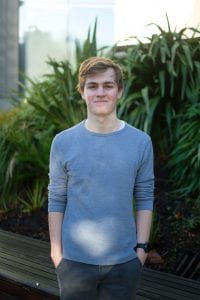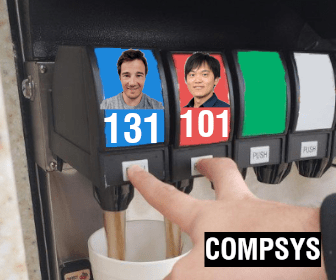
Greetings traveller, I am Alexander Bailey and I’m the Part II Computer Systems blogger for 2021!
The most common question I get about my specialisation is: “Did you not get into Software?” Well, I can gladly say that no, I did not. I chose Computer Systems Engineering (CSE). Yes, CSE is its own distinct specialisation worthy of your consideration. To some, I know that CSE is the oft-forgotten, misunderstood sibling of Software Engineering, but it is not. CSE focuses on the interaction between software (read: code) and hardware (read: bits of metal that make memes possible). CSE is such a vast field that CSE research at UoA includes AI, image processing and even functional modelling of the human heart!
I chose CSE because I enjoyed programming even before university, but in my first year fell in love with ELECTENG101 (semester two for you first years). Will and Bill’s wild ride through microcontrollers, circuits and boolean (on or off) algebra led me to choose CSE so I could get the best of both worlds! If you love reading about the latest in computer hardware or new technologies from AMD, Intel or NVIDIA, you’ll love CSE.
With your CSE prejudice dismissed, I’ll tell you about my experience of Part 2 so far. Under the new ECSE (Electrical, Computer Systems and Software) degree structure, all ECSE students take three of the same courses in the first semester of Part 2: SOFTENG 281, COMPSYS 201 and ENGSCI 211 which allows for much easier movement between degrees – make sure you check out the latest information in the 2021+ Engineering Handbook!
SOFTENG 281 🖬
ENGGEN 131’s successor is ostensibly about Object Oriented Programming (read: better code). However, it also includes topics from Computer Science, Discrete Mathematics and so on. Last semester, we learned a programming language called Java, which is somewhere in-between the Matlab and C programming you’ll learn in 131. This can be good fun, just make sure to start the assignments early!
COMPSYS 201 💻
This is the beginning of it all for Computer Systems. This course is split into two halves. The first is on Embedded Systems taught by Bill Collis from ELECTENG 101. The other covers Digital Systems Design from a new player, Kevin Wang. Tip: Make sure you go to the optional labs! These are probably your only chance to get hands-on with some hardware in the first semester.
ELECTENG 291 🗲
Those of us lucky enough to be Electrical or CSE students also take ELECTENG 291. This course is all about analysing circuits where the input changing with respect to time (so-called Alternating Current). William Lee is back for more, so if you are like me and loved the circuit analysis part of 101 and at least vaguely remember Complex Numbers from high school, you will adore this course. As it turns out, Electrical Engineering is maths all the way down.
ENGSCI 211 🧠
This is another mathematical modelling course shared between every engineering specialisation. Here, you will get an introduction to Laplace Transforms, Matrices, Differential Equations and plenty more. Electrical and CSE students are lucky as we use these all semester, meaning by the time exams come around, we’re (hopefully) very familiar with them. Unfortunately, you will have to survive some statistics, but ECSE students avoid ENGSCI 311, another mathematical modelling course (other specialisations do even more statistics)!
And that is how the first semester has been! Thanks for reading my blog post, I am loving Computer Systems, and I hope you have enjoyed reading about my journey so far! I’ll be back in two weeks to let you know what Semester Two of Computer Systems is like.
MTFBWYA,
Alex

